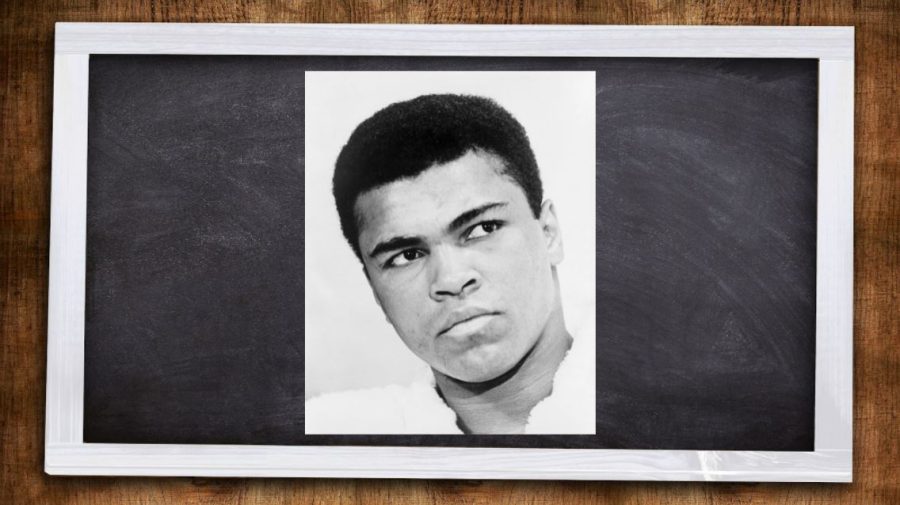Muhammad Ali
February 28, 2022
Born as Cassius Marcellus Clay Jr., Muhammad Ali was not only a record-breaking athlete, who continues to be regarded as the greatest boxer of all time, but a profound activist as well. Ali was the first boxer to win the world heavyweight championship three different times. But Ali was more than just his sports achievements; he used his popularity as a way to fight against injustice present in society.
Ali permanently changed his name in 1964 out of devotion to the Nation of Islam. When Ali was selected to be inducted into the army during the Vietnam War, he refused due to his religious beliefs and resistance to white superiority, causing him to be arrested, stripped of his championship title, and unable to fight for three and a half years. He was freed on bail and his conviction was overturned four years later. During this time, Ali traveled to different universities to give speeches, quickly becoming a prominent anti-war and civil rights activist. Ali’s defiance to sacrifice his personal beliefs demonstrated his determination to bring about change.
Fighting against race, religion, humanitarianism, and political issues, Ali was a leader in making a difference in the world. He developed Parkinson’s as he grew older, but Ali did not let this prohibit him from bringing about justice. He traveled the world for charitable purposes, such as his 1990 meeting with the Iraqi leader to discuss the release of American hostages. In 2002, he traveled as an United Nations Messenger of Peace to Afghanistan, and was awarded the Presidential Medal of Freedom in 2005. The Muhammad Ali Center, a nonprofit museum and cultural center focused on educating about peace and social responsibility, opened in 2005 as well. Ali passed away in June of 2016. His legacy, in both activism and athletics, will forever live on and continue to influence the world in the present day.
Watch Ali’s story in the Academy Award nominated film Ali.
